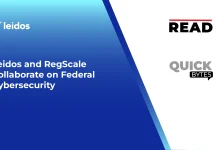Guardant Health, Inc, a leading precision oncology company, announced that its Shield blood test, recently approved by the U.S. Food and Drug Administration (FDA), is now covered by Medicare and is commercially available in the U.S. as the first FDA-approved blood test for primary colorectal cancer (CRC) screening.
The Centers for Medicare & Medicaid Services (CMS) now covers the Shield test based on the criteria established in its National Coverage Determination for blood-based colorectal cancer screening tests (NCD 210.3). The test is covered once every three years for eligible Medicare beneficiaries.
“The commercial launch of the Shield test and Medicare coverage make it possible for millions of eligible individuals to access a convenient, more pleasant way to stay up to date with colorectal cancer screening and detect the disease early, when it is more easily treated,” said AmirAli Talasaz, Guardant Health co-CEO. “From day one, Shield will be covered for more than 45 million Medicare beneficiaries, including many who are non-compliant with colonoscopy. This represents both a major step forward in the fight against colorectal cancer and a significant opportunity for Guardant Health. We also look forward to the process of getting Shield included in clinical guidelines to support private payer coverage, which will enable even broader and more equitable access.”
Commercial insurance coverage for patients eligible for CRC screening will continue to expand pending future review and inclusion in guidelines by the American Cancer Society and the U.S. Preventive Services Task Force (USPSTF).
The Shield test received FDA approval as a primary non-invasive option for CRC screening in average-risk adults age 45 and older. The FDA approval was based on results of ECLIPSE , a 20,000+-patient registrational study evaluating the performance of the test for detecting CRC in average-risk adults. Results from the study, published in The New England Journal of Medicine, showed that Shield demonstrated 83% sensitivity for the detection of CRC, with 90% specificity for advanced neoplasia. This performance is within range of current guideline-recommended non-invasive screening methods, in which overall CRC sensitivity ranges from 74% to 92%. 1,2
Screening for CRC is only effective if the test is completed. Over the last two years, among more than 20,000 Shield tests ordered by providers, there was greater than 90% adherence by patients to their provider’s order for CRC screening, a much higher rate than the 28-71% adherence to colonoscopy and stool-based testing. 2,3 Further, a randomized study from Kaiser Permanente demonstrated that when Shield blood testing was offered as an additional choice to standard screening options of stool testing and colonoscopy, 3 times more people were screened. 4
In addition, a health outcome model (CAN-SCREEN) evaluating 1000 individuals age 45 – 75 years and at average risk of colorectal cancer demonstrates how combining test performance and high patient adherence through blood-based screening can optimize CRC-related health outcomes. Shield outperforms two guideline-recommended stool-based tests, fecal immunochemical test (FIT) and the multi-target stool DNA (mtsDNA) test when considering life years gained (214 vs. 157 and 199) and CRC cases averted (27 vs. 16 and 22). Shield also prevents more deaths from CRC (13 vs. 7 and 11). 5
“The idea of introducing a blood test that can screen for colorectal cancer has been a dream of mine for decades,” said Andrew Spiegel, Chief Executive Officer of the Global Colon Cancer Association. “And that’s because I’ve seen the toll that colorectal cancer takes on the lives of those it impacts – especially when caught late. Having a test now in our toolbox that is so simple and straightforward to do will hopefully eliminate any and all excuses for skipping screening and help us finally bring our country’s screening rates to where they need to be.”
SOURCE: Guardant Health




